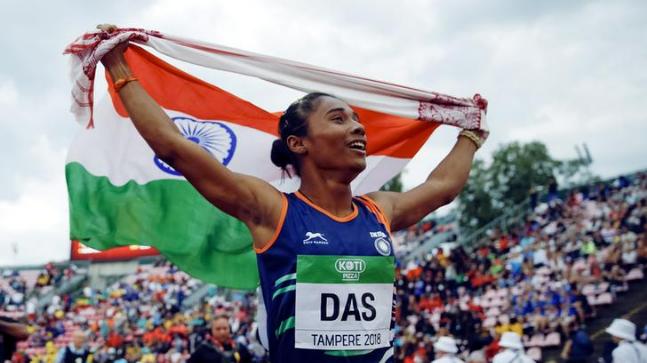What are the different connotations that sports hold for us? Have its horizons expanded to accepting women, and how successful is it now?
29th August is celebrated as the National Sports Day, dedicated to the sportspersons and their hard work. It is a day to commemorate their contributions towards playing for our country and winning laurels. But, in reality, it is a day to celebrate popular sportsmen like Virat Kohli, with huge cults around them and few popular sports like cricket, which have a massive viewer-base. With a few days still left to this important day, why not realign our horizons and shift our focus?
PV Sindhu, Dutee Chand, Mithali Raj, Deepika Kumari, Tanlai Narzary, the Phogat sisters – over the past few years, Indian sportswomen have created a name and distinct space for themselves. However, the recognition from people still seems to be a far-fetched dream. But movies like Dangal and Mary Kom haved helped in garnering traction to and some attention towards their struggles. With these films, not only did they gain more recognition, but it also tackled the ideas of social stigma attached to women in sports.
Recently, there was a celebratory parade for the four-time Women’s World Cup Champions in the United States of America. This event is significant given that, not just in our country, but all over the world, women’s sporting events are disregarded. The idea behind this attitude often stems from the belief that their performance is not at par with those of the sportspersons in men’s sporting events. The only focus, if given at all, is upon their clothes and their outburst.
Tennis, which is one of the only sporting places where women are seen as equals, also tends to gain attention only when Serena Williams displays her anger. What this normal emotion of rage is linked to is the idea of how women are ‘too emotional’. Women are represented in the light of being too sensitive in magazines and news pieces. What we do not realise is that this discrimination in terms of behaviour, pay, and popularity only pushes women to the background.
The problems extend further to the lack of funding and even basic training conditions. Stories of sportspersons having to sell their medals to earn money, because they are not provided with anything, have become commonplace. Many talented sportswomen are not trained in the first place, due to the many obstacles that lie ahead.
Female products-oriented companies will now sponsor their events, in the big leagues, more companies now want to be front-of-shirt sponsors. India’s Dutee Chand opened up about her sexuality as a queer person recently, and fought the backlash she received from her village, in order to make a more inclusive environment for others like her. Megan Rapinoe has also come out with her partner, Sue Bird. These mark historic steps for our country and the way sportswomen demand respect.
In a country like India, ideas of equality cannot be implemented immediately because of how our society thinks. But movies become an important access point to normalise this. The film, Chak De India, recently completed twelve years since its release. Despite being a decade old, its plot and issues remain relevant. It deals with women not being allowed to play sports, women’s teams being deprioritised, being considered at an inferior status from the men’s team, among other issues.
What has opened up today is a dialogue. Newspapers talking about the starkly different salaries for Kohli and Mithali Raj, advertisements campaigns trying to spread awareness – there are some of the things contributing to it. This dialogue may have just begun, but it could soon lead to equality among sportspersons of all genders. Maybe soon, people will stick to their televisions for a Women’s Cricket World Cup tournament, as they did for the one played by men.
Feature Image Credits: India Today
Shivani Dadhwal





Comments are closed.